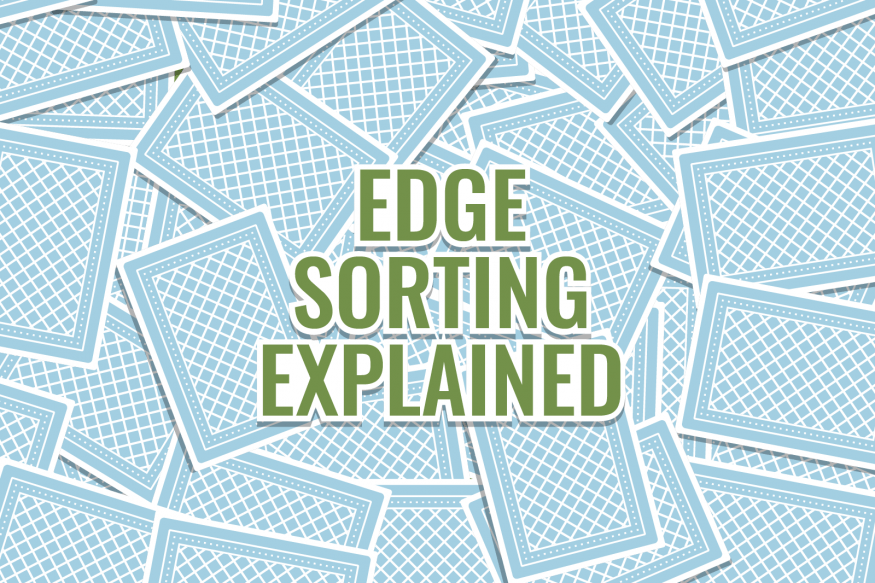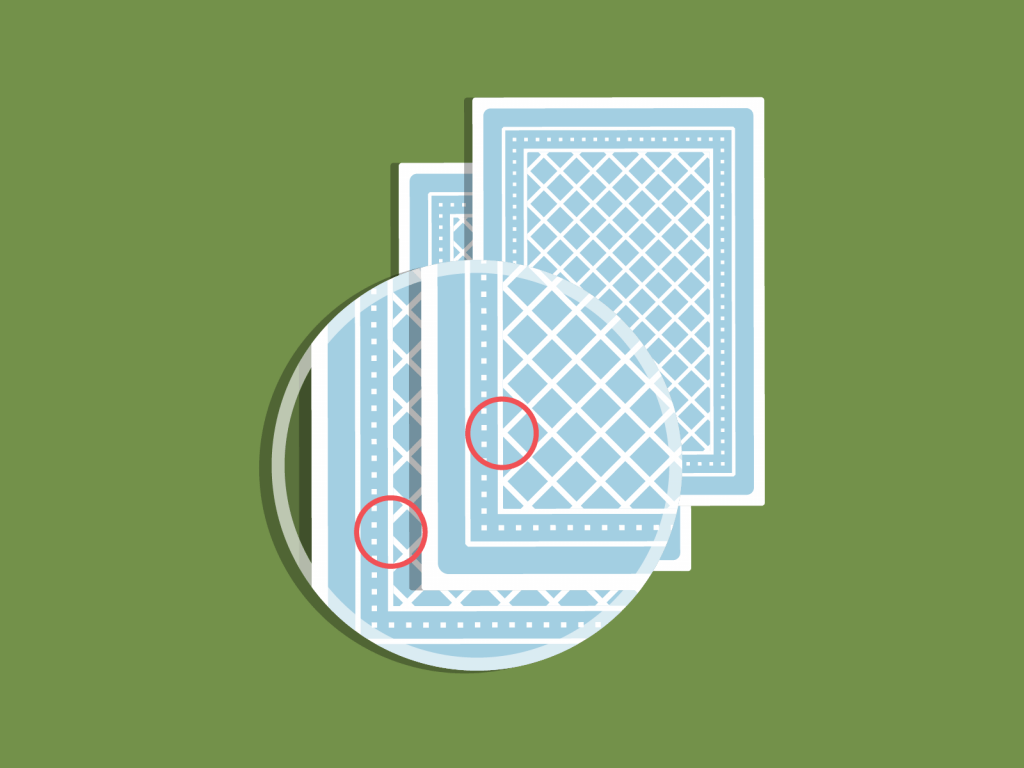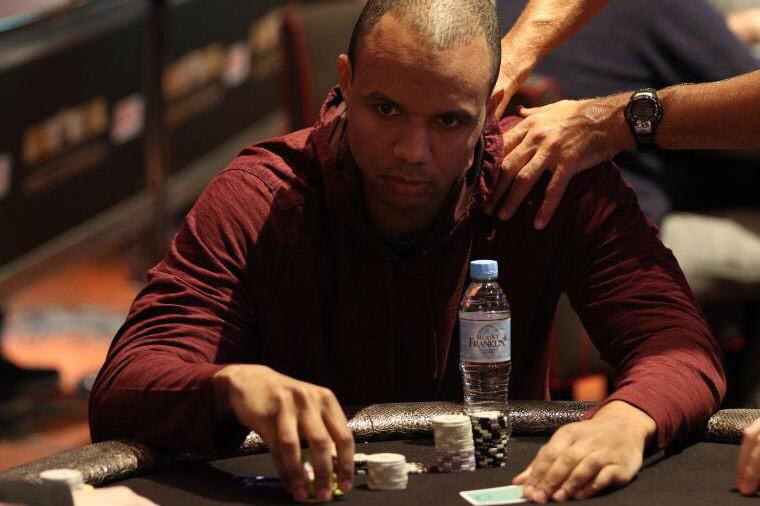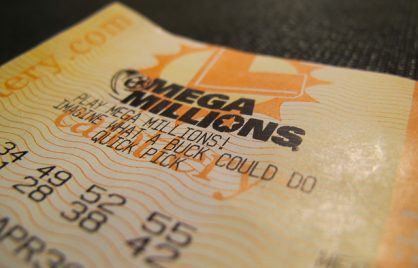Edge Sorting: Pure Cheating, Or A Smart Technique To Help You Beat The House?

Edge sorting isn’t card counting, and in theory isn’t cheating, but it comes close enough to that line to be considered unfair.
And as we all know from the infamous Phil Ivey case, casinos don’t take kindly to players using the technique.
But what is it and how does it work?
Keep reading to understand more about edge sorting and what went down with Phil Ivey.
What Is Edge Sorting?
Edge sorting is an advantage play technique used mostly in baccarat, where players make use of imperfections on the backs of cards to help identify specific ones, giving them an edge over the casino.
Edge sorting requires a defective decks of cards – cards with slightly different patterns or cuts – and some seriously impressive vision.
The playing cards seem perfectly normal at first glance, but the patterns on their backs aren’t symmetrical.
While many decks have a standard image and border on the back, many use a series of circles or diamonds instead.
When the cards are cut, they aren’t 100% symmetrical, with one side of the card showing the full circle or diamond, while the other shows half of the shape.

Just seeing this difference in pattern doesn’t do anything, though, so you need to do the ‘sorting’ part.
When one card is rotated 180 degrees, two cards can be distinguished from one another.
As you can’t be sorting through cards in the casino, this needs to be done with a keen eye or by making use of clever requests and techniques to make it happen.
How Edge Sorting Works
Someone looking to take advantage of this defect firstly needs to find a casino where defective cards are being used.
While most manufacturers try their best to avoid such mistakes, it does happen.
So, once the player knows about the typical make of card decks with this defect and they find a casino using them (or convince the casino to use these decks), they can set their plan in motion.
This technique works very well for punto banco (variation of baccarat), the game where you gain a big advantage if you can identify big (face) cards from regular ones.
During the course of the game, the player will ask the dealer to rotate face cards.
They can do this under a guise of superstition, and if the dealer is unaware of what’s going on, they’ll usually indulge the player, especially if the request comes from a high roller.
Once the shoe is out, all cards will be positioned just right. High cards will be rotated one way, and low cards will be rotated the other way.
So, when the deal begins again, the player will be able to distinguish between low (especially 6s through 9s) and high cards and place their bets on the more favorable side.
For this strategy to work, it’s also essential that the casino uses an automatic card shuffler as the machine will not rotate cards during the shuffle.
If this process were done manually by the dealer, the entire setup would be spoiled, and the player would get no advantage.
Is Edge Sorting Illegal?
Although the lines are blurred around whether it’s a form of cheating, edge sorting isn’t illegal.
Most laws stipulate that cheating has to involve some sort of interference with the game.
With edge sorting, players aren’t using any special tools or even physically touching the cards, so there are no elements of cheating as such.
However, while it’s very unlikely for someone to be prosecuted for doing this, they are equally unlikely to get their money if the casino catches on to them – and it seems that most courts side with the casinos on that particular matter.
How Phil Ivey Used Edge Sorting

Edge sorting became well known back in 2012 when Phil Ivey was accused of using it during high stakes baccarat sessions in Atlantic City and London.
During four visits to the Borgata Hotel Casino & Spa in New Jersey he pulled in about $9.6 million, and followed that with a four-day baccarat binge at Crockfords in London where he made nearly $10 million.
When the casinos investigated these huge wins, they claimed he cheated. Ivey admitted to using edge sorting but claimed it was legitimate.
So how did he do it?
Namely, in 2012, Ivey took Crockfords for £7.7 million ($9.6 million) playing high stakes baccarat.
The casino was suspicious and refused to pay out, giving Ivey only his £1 million deposit back.
It later came to light that the high roller and his accomplice, Cheung Yin Sun, used edge sorting during their sessions.
They’d asked for a specific brand of playing cards with a distinct white-circle pattern on the back.
They asked to use a shuffling machine and, once completing the shoe, they asked to keep using the same decks.
Their strangest request?
In the first round of games, they had the dealer rotate all the 7s through 9s, the most valuable cards in baccarat, as they first came out of the shoe.
As mentioned already, casinos often indulge the superstitions and good-luck rituals gamblers request.
Considering how much Ivey was wagering per hand, of course they wanted to keep him at the table and didn’t mind abiding by his strange quirks.
Ivey decided to take them to court asking for his winnings to be paid in full.
He never once tried to deny they were using edge sorting – he simply saw nothing wrong with it as it wasn’t cheating.
UK courts didn’t see it that way, though.
Although they didn’t say Ivey was cheating, they all agreed that he had no proper claim to the money.
They concluded he was purposefully dishonest, asking the dealer to rotate cards under false pretenses (claiming he was superstitious), which interfered with the regular flow of the game.
Ivey not getting paid his winnings sucked for the high roller, but it wasn’t as bad as the suit from Borgata Casino that emerged soon after the edge sorting story hit the headlines.
After getting wind of what happened in the UK, the Atlantic City Casino filed suit against Ivey, asking for $9.6 million back – the amount Ivey won playing punto banco at Borgata between April and October 2012.
The ball was on the other side of the court in this case as Ivey had already been paid his money and Borgata was trying to get it back.
Of course, Ivey wasn’t going to go down without a fight, and a long legal battle ensued.
In 2018, the battle came to an official end, as the court decided Borgata was in the right and gave the casino the green light to go after Ivey’s assets.
This wasn’t something that came as a huge surprise and Ivey was clearly ready for it, as Borgata found the zero balance in his New Jersey account after the court ruling allowed them to go after his money.
However, they did manage to get some of it back thanks to his performance at the 2019 World Series of Poker, where Ivey had his $124,410 in winnings seized by the Borgata Casino.
He’s one of the richest poker players in the world, although it’s presumed his cash is not located in US banks.
? Find out why Casino.org’s scams and cheating expert, R.Paul Wilson, doesn’t believe Ivey should have been punished for cheating.
Remember: The House Always Wins
While different variations of edge sorting may have been around for a while, it wasn’t until relatively recently that the technique became known to the general public, primarily because of Ivey’s high profile case.
This will probably force card manufacturers to pay much more attention to their production process and avoid these types of errors in the future.
The public opinion remains somewhat divided on the topic.
While some believe there is nothing wrong with edge sorting and is the casino’s fault, others think that cheating is cheating, no matter how you try to wrap it.
At the end of the day, it turns out that you really can’t beat the casino in their own game.
Even if you find an edge, they’ll likely find a way to get their money back one way or another.
Of course, this has never stopped people from trying, and they’ll continue to try in the future, no matter how unfavorable the odds may seem.


